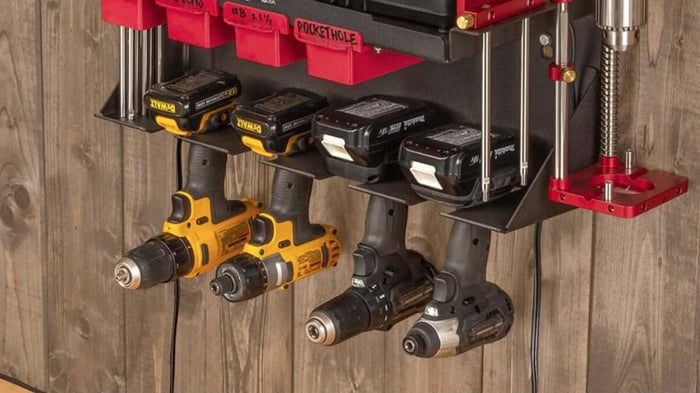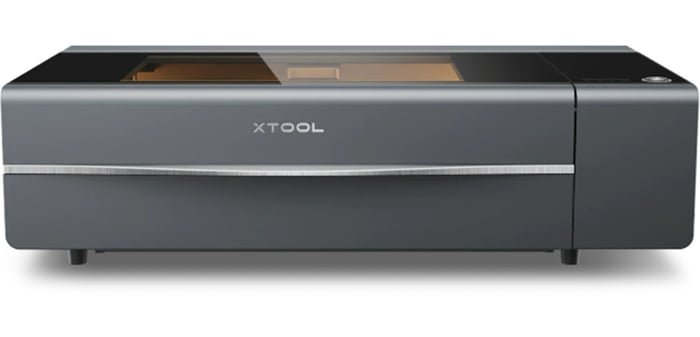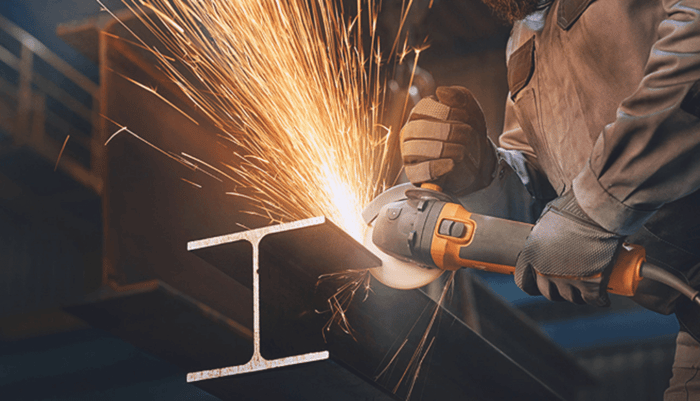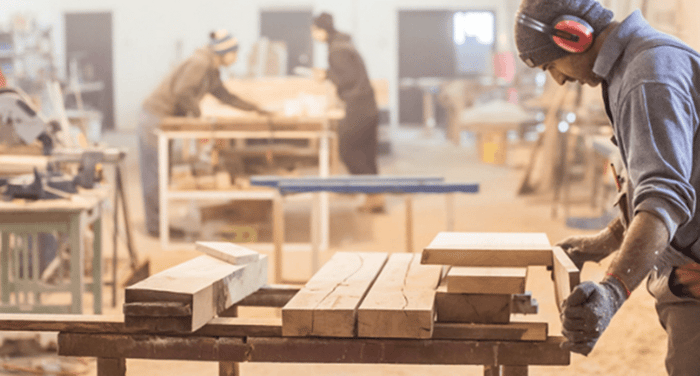
Must-Have Tools for Woodworking
Building your woodworking toolkit is essential for crafting precise, durable, and professional-quality projects. Here’s a streamlined guide to the tools every woodworker—beginner or seasoned—should own, organized by category for easy reference.
1. Measuring Tools
Precision is the cornerstone of woodworking, and measuring tools are indispensable. Key items include:
- Measuring Tape: For quick, accurate measurements.
- Squares: Ensure straight corners and accurate joints.
- Calipers: Measure thickness for detailed work.
- Levels: Perfect for aligning and leveling surfaces.
Invest in quality measuring tools to ensure consistent accuracy, especially for intricate joinery like dovetails or mortise and tenon joints.
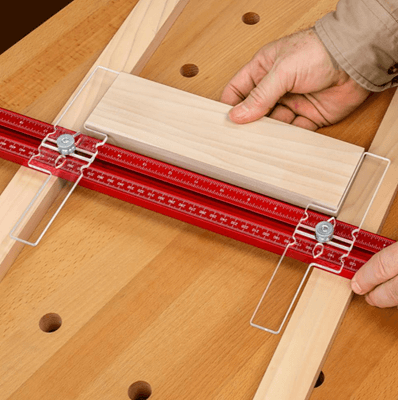 Woodpeckers SSPRO-CA SS Pro Caliper Arms - 1 set These modest marking tools, often simply lengths of wood, delivered repeatable measurements without the need of calibrated measuring devises or even workers skilled in using them.
Woodpeckers SSPRO-CA SS Pro Caliper Arms - 1 set These modest marking tools, often simply lengths of wood, delivered repeatable measurements without the need of calibrated measuring devises or even workers skilled in using them.2. Cutting Tools
Cutting tools shape wood into the desired forms. Hand and power tools each have their place:
- Hand Saws: Ideal for detailed or traditional woodworking.
- Chisels: Precision shaping and carving.
- Jigsaw: Perfect for intricate curves.
- Table Saw: Best for straight, large cuts.
Match your tools to your project needs and wood type to achieve professional results.
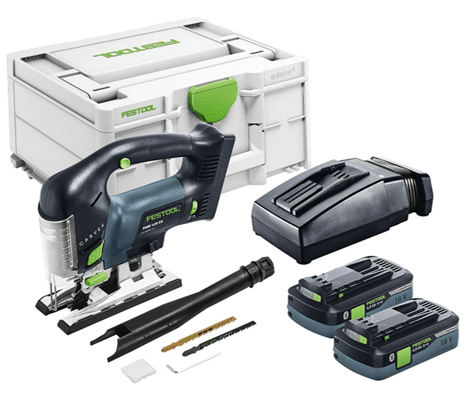 Festool 576535 Cordless Jigsaw PSBC 420 HPC 4,0 EBI-Plus CARVEX Tackle your most demanding (and remote) applications with the robust and versatile new Carvex Cordless Jigsaws.
Festool 576535 Cordless Jigsaw PSBC 420 HPC 4,0 EBI-Plus CARVEX Tackle your most demanding (and remote) applications with the robust and versatile new Carvex Cordless Jigsaws.3. Hand Tools
Hand tools offer unmatched control for fine details:
- Woodworking Planes: Smooth surfaces for a perfect fit.
- Carving Tools: Add intricate details.
Keep hand tools sharp and clean to ensure optimal performance and longevity.
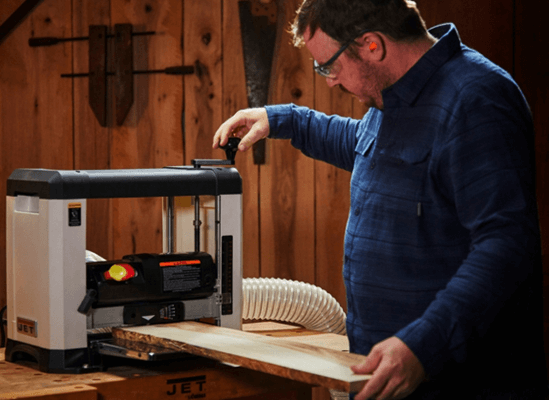 Jet 722130 JWP-13BT 13 Inch Planer with Helical Style Head Features include a helical-style cutterhead with 6 rows of 26 precision sharpened blades, rugged 4 post design, adjustable folding tables, 2 infeed speeds and a sturdy cast iron base which helps reduce snipe.
Jet 722130 JWP-13BT 13 Inch Planer with Helical Style Head Features include a helical-style cutterhead with 6 rows of 26 precision sharpened blades, rugged 4 post design, adjustable folding tables, 2 infeed speeds and a sturdy cast iron base which helps reduce snipe.4. Power Tools
For efficiency and precision, power tools are a must:
- Router: Hollow out wood and create edges.
- Sander: Prepare wood surfaces for finishing.
- Jointers: Achieve seamless joints.
Select tools based on project complexity and desired finishes.
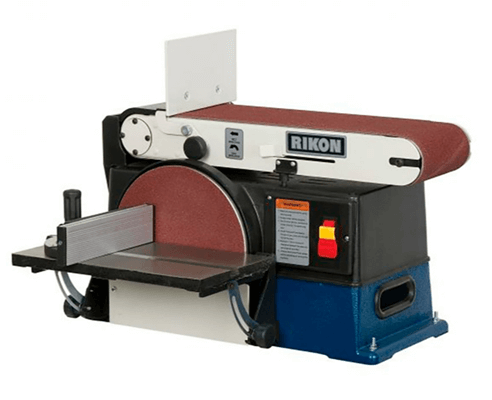 Rikon 50-120 6" x 48" Belt / 10" Disc Sander This tool is a large, robust sander, that shines where the majority of sanding would be done on the wide abrasive belt.
Rikon 50-120 6" x 48" Belt / 10" Disc Sander This tool is a large, robust sander, that shines where the majority of sanding would be done on the wide abrasive belt.5. Clamps
Clamps are essential for securing pieces during assembly:
- Bar Clamps: Ideal for large projects.
- C-Clamps: Great for smaller tasks.
- Pipe Clamps: Adjustable for various sizes.
Store clamps properly to maintain functionality and extend their lifespan.
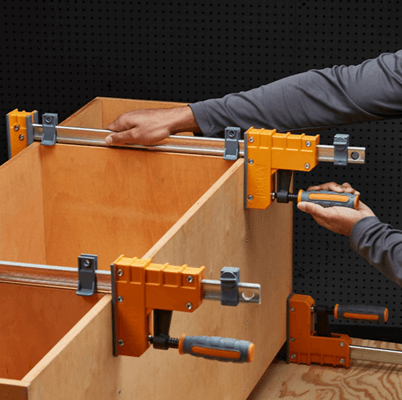 Bora 571450I 4-Piece Parallel Clamp Set - Inc. (2) 18 Inch + (2) 24 Inch Clamps The top-selling Bora 18-inch and 24-inch Parallel Clamps deliver exceptional clamping pressure and performance with an easy-to-use design.
Bora 571450I 4-Piece Parallel Clamp Set - Inc. (2) 18 Inch + (2) 24 Inch Clamps The top-selling Bora 18-inch and 24-inch Parallel Clamps deliver exceptional clamping pressure and performance with an easy-to-use design.6. Safety Equipment
Protect yourself with essential safety gear:
- Goggles: Shield your eyes from debris.
- Dust Masks: Prevent respiratory issues.
- Ear Protection: Essential for loud machinery.
A well-maintained dust collection system ensures a safer, cleaner workspace.
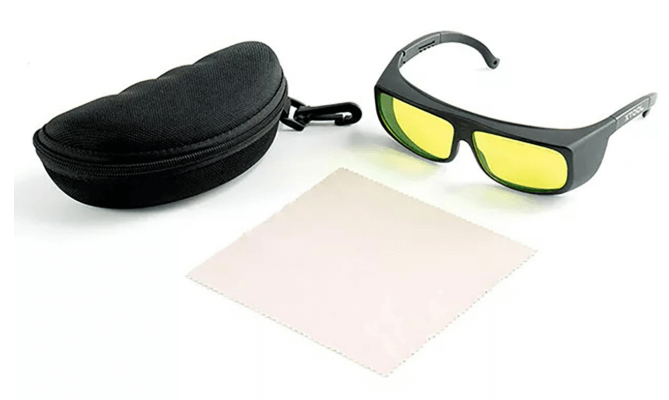 xTool Safety Goggles Wearing safety goggles during laser processing can effectively protect your eyes.
xTool Safety Goggles Wearing safety goggles during laser processing can effectively protect your eyes. 7. Finishing Tools
Finishing tools enhance the appearance and durability of projects:
- Hand Sanders: Smooth surfaces for painting or staining.
- Spray Guns: Apply even coats of stain or paint.
Choose finishing products that complement your wood type and desired look.
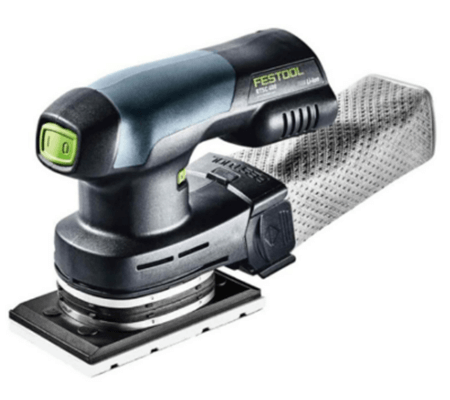 Festool 577688 Cordless orbital sander RTSC 400 3,0 I-Plus Balanced with a unique ergonomic battery for optimum performance and handling.
Festool 577688 Cordless orbital sander RTSC 400 3,0 I-Plus Balanced with a unique ergonomic battery for optimum performance and handling.8. Sharpening Tools
Keep tools in peak condition with sharpening tools like whetstones and honing guides. Regular maintenance improves precision and extends tool life.
9. Joinery Tools
For strong, seamless connections:
Choose joinery methods that match the structural needs and aesthetics of your project.
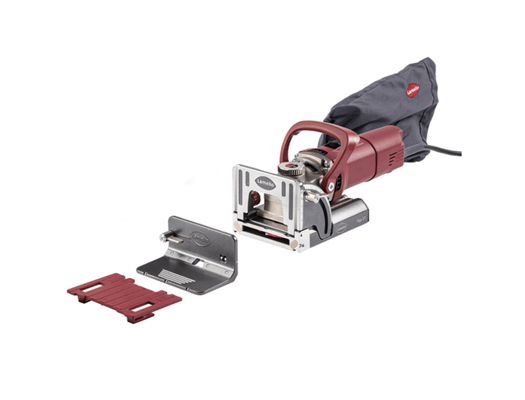 Lamello 101500S Top 21 With Accessories Precision in every component leads to perfect accuracy of the workpieces and saves time.
Lamello 101500S Top 21 With Accessories Precision in every component leads to perfect accuracy of the workpieces and saves time.10. Storage and Organization Tools
Maintain an efficient workspace with storage solutions:
- Pegboards: Keep tools visible and accessible.
- Rolling Tool Chests: For mobility and organization.
Label tools for quick identification and smoother workflow.
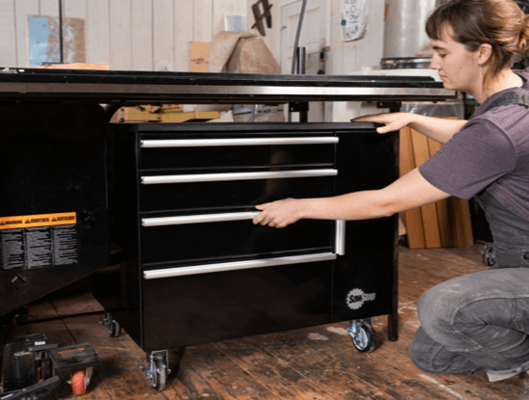 SawStop TSA-UTC32 32 Inch Under Table Cabinet Complete your workshop with the 32" Under Table Cabinet, designed to fit perfectly beneath your SawStop.
SawStop TSA-UTC32 32 Inch Under Table Cabinet Complete your workshop with the 32" Under Table Cabinet, designed to fit perfectly beneath your SawStop.Conclusion
Investing in quality tools and maintaining them properly ensures successful woodworking projects, whether you’re a hobbyist or a professional. Start with the basics, and gradually expand your collection to suit your evolving skills and project demands.
Frequently Asked Questions
What tools should a beginner woodworker start with?
Beginner woodworkers should start with a measuring tape, square, hand saw, chisels, and a drill. These tools provide a solid foundation for learning basic skills.
Are power tools necessary for woodworking?
Power tools like routers, sanders, and table saws enhance efficiency and precision, making them essential for more complex projects.
Why invest in high-quality tools?
Quality tools offer better performance, durability, and precision, leading to improved craftsmanship and long-term cost savings.
How can I maintain my woodworking tools?
Regular cleaning, sharpening, and proper storage prevent rust and wear, ensuring tools remain reliable and effective.
What safety gear is essential for woodworking?
Essential safety gear includes goggles, masks, gloves, ear protection, and sturdy footwear to minimize risks in the workshop.



